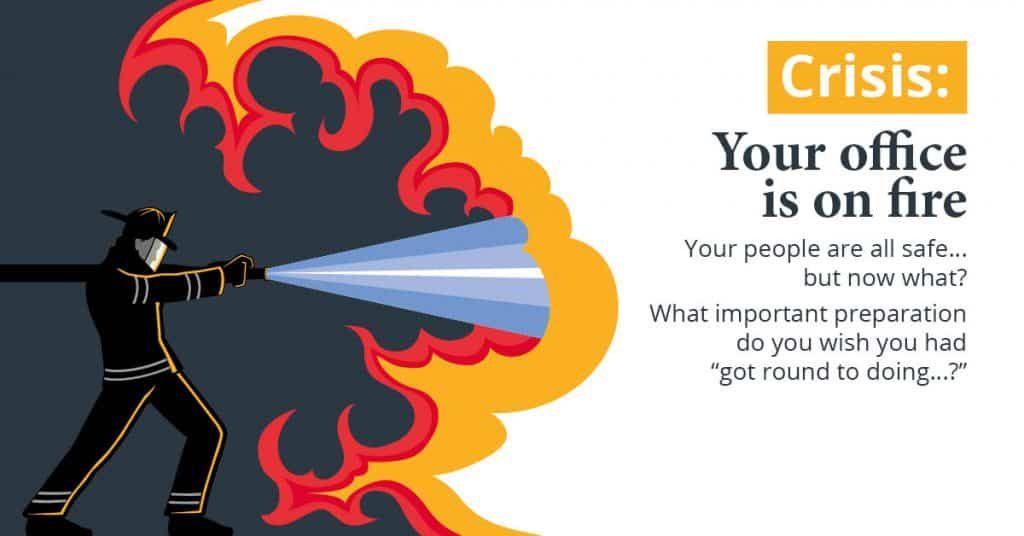Read and Download our new guide Crisis: Your office is on fire.
This is something none of us wants to experience. But it does happen.
There’s a small fire in your office. No one is hurt and everyone is safe. But the damage to your workplace is unbelievable. The flames. The heat. The smoke. And of course, the huge amounts of water used to put out the fire.
Good thing you’re well covered on insurance.
As you’re surveying the damage, you see your server, located near where the fire was. It’s bent and twisted – clearly, that’s going to need replacing.
Good thing you have a backup… no… wait… the backup…
You feel your skin go cold as you remember a conversation you had with a member of your team a few weeks ago. They’d noticed the automated backup had stopped working. In fact, it hadn’t worked for some time. You agreed on a new backup needed to be put in place at some point. Till then, you asked your colleague to make a manual backup a couple of times a week onto an external hard disc drive.
That seemed an appropriate thing to do.
Where did he keep that disc?
Your eyes flick to his desk… black… charred… and dripping with water. The contents of his drawers are on the floor. Including the battered remains of the drive.
With startling clarity, you suddenly realize this has become a catastrophe of epic proportions.
Here’s a good question – if there had been a fire in your office last night, what would you wish you’d got round to doing yesterday?
Think about all your computers and specifically the data on them. Is your data as protected and backed up as it could be? Are you triple sure of that?
Here’s the reality: Businesses that lose their data in this way have a greater chance of going under than surviving
If you think that sentence alone is scary, here are some specific stats:
- 50% of businesses that lose data due to disaster go bankrupt
- 93% of businesses that lose their data for 10 days or more go bust within a year
- And 70% of businesses that suffer a severe fire go bankrupt within five years (30% of them do it after just one year).
But with all that in mind, what are the overdue jobs that you keep putting off that – if the worst happened – you’d be kicking yourself about? What would you wish you’d have done this week?
Here are a few to think about:
- A reliable, robust and verified data backup
- Protect your devices
- Know what devices you actually have
There are probably many more things you can think of that you’d prefer to get done now, just in case disaster does strike.
Perhaps you could make a list and prioritize them.
When it comes to keeping your business safe, please don’t put off the things that you really should do today. Remember those stats we gave you earlier on. The businesses that survive are the ones that are prepared.
Read and Download our brand new guide now. It’ll show you the things you need to make a priority to keep you protected from any disaster.
If planning for disaster recovery seems like too much work at an already hectic time, give us a call. We’d love to help you get these vital precautions in place, so you can sleep more peacefully at night.




